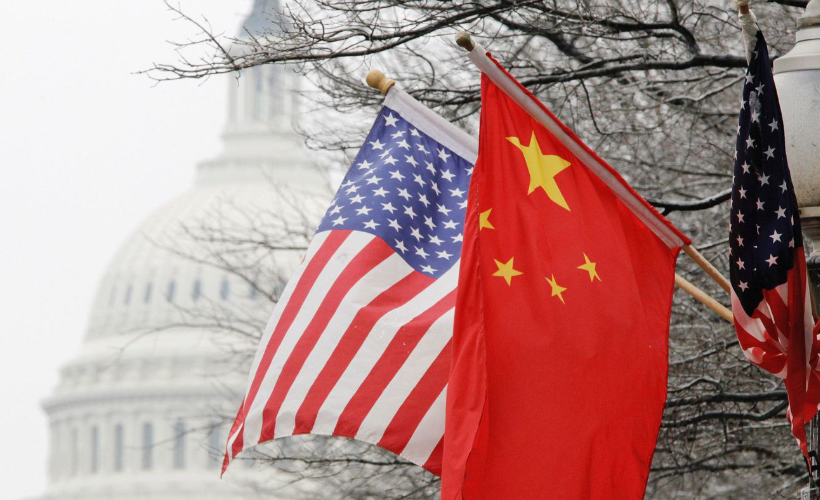The futility of American whining about China

China is less of a “free rider” today on U.S.-led international systems than ever before, but American “whining” about China has never been greater. And it’s hurting the U.S. strategically.
This is an argument made by veteran American diplomat Evan Feigenbaum in a recent piece on MacroPolo. He explains his view that the current China-bashing mood in Washington is characterized by six blind spots:
- “It’s tough to critique another country’s obvious revisionism when you’re a revisionist yourself.” Not just Trump’s America, but much of Europe has embraced nationalism and shied away from multilateral trade agreements that could effectively push back against China’s power expansion in Asia.
- “China is a revisionist power but not a revolutionary one. This distinction is being blurred but actually matters.” China has disrupted institutions such as the IMF and World Bank, but that is “not even one iota surprising,” while rather than reducing its commitments to traditional international banks, China has actually increased its contributions. In this way, “China’s strategy is actually one of portfolio diversification, not the replacement of institutions and systems.” Read more in Bloomberg: At World Bank, China moves to the grown-up table (paywall).
- “American policy did not ‘mistake’ the implications of China’s rise.” An iconic 2005 speech by a State Department official coined the term “responsible stakeholder,” and urged China to become one. This problem was framed accurately over a decade ago, Feigenbaum writes, and Beijing has increased its contributions to international diplomatic efforts since then. This, along with China increasing its contributions to the IMF and World Bank, have reduced the problem of China “free riding” that Washington in the 2000s saw as so worrisome.
- Although China’s communist ideology is popular to blame for China’s differing international values, the NATO intervention in the Balkans (which bypassed the UN Security Council, where China wielded a veto) after the Cold War in the 1990s is actually where Feigenbaum sees Beijing’s position on territorial sovereignty and several other issues start to dramatically split from the U.S.
- “China has leveraged pan-Asian ideas that others actually invented first. That makes it harder for Washington to push back.” For example, “Before there was an AIIB, there was Japan’s proposal of an Asian Monetary Fund, which helped give rise to today’s Chiang Mai Initiative of bilateral currency swaps among Southeast and Northeast Asian countries.” Read more about how China has begun “loudly speaking the language of international development” in this New York Times op-ed by James Millward (paywall), or learn more about Silk Road history from this Sinica Podcast with him.
- “Whining isn’t competing.” Asia has undergone a gradual process in the past decade of becoming more “Asian,” and less European, Pacific, and sub-regional, and China’s Belt and Road is just part of this process, Feigenbaum writes. Meanwhile, “the US response to this has mostly been to complain about the Belt and Road” and urge countries to not take Chinese loans. But without a proper alternative provided by the U.S. — and “the U.S. is diplomatically challenged and commercially weak in around two-thirds of the Eurasian continental landmass” — this tactic has invited unfavorable comparisons between the U.S. and China.
The U.S. can and must compete better with China in Asia, Feigenbaum writes, by “leveraging its uniquely American strengths — technology, innovation ecosystems, STEM education, connections to the global capital markets, best in class services and other firms, and so on.”
Meanwhile, Andrew Polk writes in Bloomberg (paywall), “China is quietly setting global standards” for “everything from construction to finance to data management,” earning its companies a competitive advantage in third markets across Asia and beyond.
That is, of course, a core area of competition that the Trans-Pacific Partnership — which Trump ripped up on his first day in office — was supposed to help the U.S. compete against China in.






